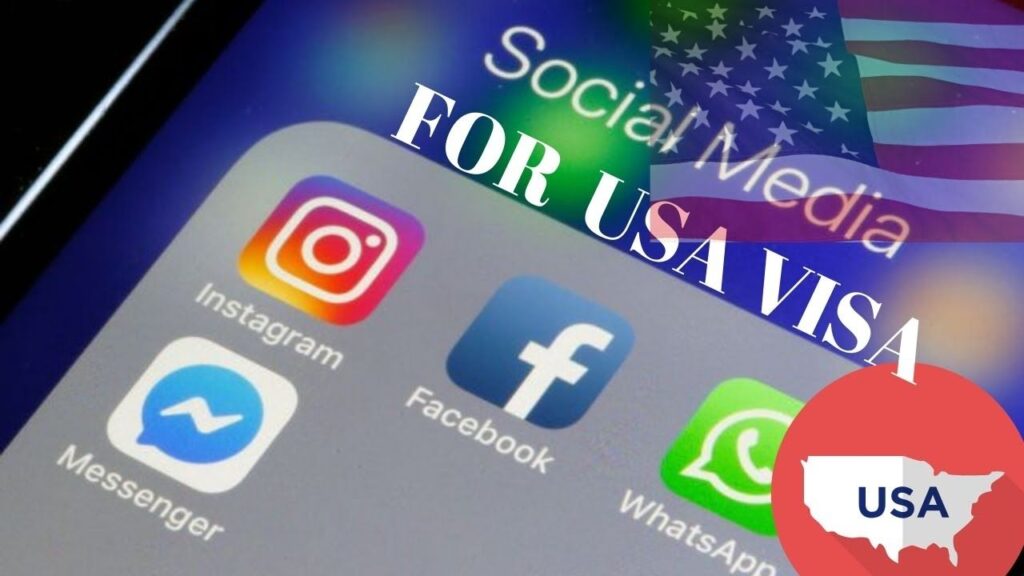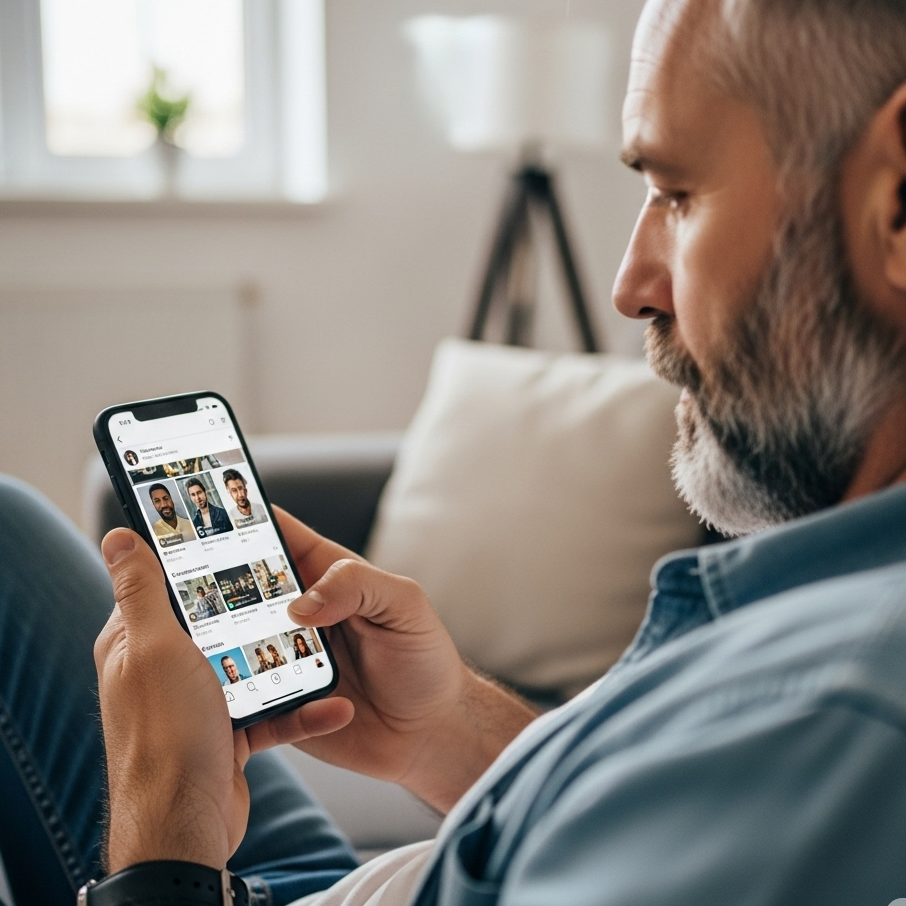Embarking on a journey to study in the United States is an exhilarating prospect, filled with promise and new opportunities. However, navigating the US study visa application process can feel complex, and a recent update from the U.S. State Department has added a crucial new dimension: the mandatory adjustment of your Social Media Account Privacy Settings to Apply for US Study Visa. This change, specifically for F, M, and J non-immigrant visa applicants, means your online presence is now a key part of the vetting process.1 But don’t worry, with the right information and proactive steps, you can confidently navigate this requirement and keep your American dream within reach.

Social Media Account Privacy Settings to Apply for US Study Visa
| Key Fact | Detail/Statistic | Source (linked) |
| New Requirement | All F, M, and J non-immigrant visa applicants are requested to set their social media profiles to “public” for vetting. | US Embassy India |
| Scope of Review | Consular officers will conduct a comprehensive review of your online presence, looking for “hostile attitudes” toward the US, national security threats, and ensuring identity and admissibility. | U.S. Embassy & Consulates in Mexico |
| Platforms Covered | The DS-160 form specifically lists platforms like Facebook, X (formerly Twitter), Instagram, YouTube, LinkedIn, Reddit, TikTok, Snapchat, Pinterest, Tumblr, and Douban (China). You must disclose all accounts used in the last five years. | India Today |
| Honesty is Key | Omitting social media information or providing false details can lead to visa denial and ineligibility for future visas. | The Journal |
The updated requirements for Social Media Account Privacy Settings to Apply for US Study Visa are a significant evolution in the application process. While they add a new layer of diligence, they are ultimately designed to ensure a secure and trustworthy environment for all. By approaching your social media presence with honesty, transparency, and a clear understanding of what consular officers are looking for, you can demonstrate your eligibility and commitment to your academic pursuits in the United States.
Why Your Social Media Matters More Than Ever
For years, the DS-160 visa application form has included questions about social media identifiers. However, the latest directive takes this a significant step further. The U.S. State Department’s recent announcement emphasizes that for student and exchange visitor visas (F, M, and J categories), applicants are requested to adjust their privacy settings to “public.” This isn’t just about collecting usernames anymore; it’s about providing transparency and facilitating a thorough vetting process.
In my experience advising students, one common hurdle is underestimating the depth of this review. The goal of this enhanced scrutiny is to ensure national security and to verify that applicants genuinely intend to pursue their studies and comply with U.S. laws. Consular officers are looking for any content that might indicate a threat, a misrepresentation, or a hostile attitude towards the United States, its citizens, culture, government, or institutions. This includes everything from past posts, likes, affiliations, and even interactions.

Guide to Preparing Your Digital Footprint
Preparing your social media for your US study visa application requires a thoughtful and systematic approach. It’s not about erasing your online history, but rather ensuring it reflects your genuine intentions and aligns with the integrity required for a visa.
1. Understand the “Public” Requirement and Act Accordingly
The most significant change is the request to set your social media profiles to “public.” While this might feel intrusive, it’s a direct request from the U.S. State Department to facilitate their vetting.
- Temporary Adjustment: Consider making your profiles public temporarily for the duration of your visa application process, especially around your interview date.
- Platform-Specific Settings: Learn how to adjust privacy settings on each platform you use (Facebook, Instagram, X/Twitter, LinkedIn, TikTok, etc.). Remember, different platforms have different settings.
- Match Identities: Where possible, ensure your display name and profile details on social media align with your official identity documents (passport, visa application). This helps avoid confusion.
2. Comprehensive Review of Your Content
This is where the real work happens. Think of yourself as a consular officer reviewing your profile. What would they see?
- The Five-Year Lookback: The U.S. government requires you to disclose all social media handles used in the last five years on your DS-160 form. This means even old, inactive, or embarrassing accounts need to be considered.
- “Hostile Attitudes”: Pay close attention to content that could be interpreted as hostile towards the U.S. This includes political commentary, criticisms of U.S. foreign policy, or any posts that could be seen as supporting extremist views or illegal activities. Even seemingly innocent jokes or memes can be misinterpreted without context.
- Consistency is Key: Ensure consistency between the information on your visa application and your social media profiles. Discrepancies in your educational background, employment history, or travel plans could raise red flags.
- Avoid Sensitive Topics: While freedom of speech is a fundamental principle, when applying for a visa, it’s prudent to avoid public discussions or endorsements of highly sensitive political or social issues that could be misconstrued, especially if they are critical of U.S. policies or institutions.
- Professionalism: Maintain a professional and respectful online presence. This includes language, tone, and the types of content you share.
- Visual Content: Review photos and videos. Are there any images that could be deemed inappropriate, offensive, or that contradict your visa application details?

3. Honesty and Transparency on the DS-160
The DS-160 form is your official declaration. Any dishonesty here can have severe consequences, including visa denial and future ineligibility.
- List All Accounts: You are required to list every social media platform and associated handle you’ve used in the last five years. Even if an account is inactive or deleted, you must disclose it. Attempting to hide or omit accounts can be interpreted as an attempt to deceive.
- “None” is an Option (If True): If you genuinely have not used any social media platforms in the last five years, you can select “None” on the DS-160. However, be prepared for potential follow-up questions if your digital footprint suggests otherwise.
- No Passwords Required: The U.S. government explicitly states they will not ask for your social media passwords.
4. Post-Application Monitoring
Your social media vigilance shouldn’t end once you’ve submitted your application or completed your interview. Continue to be mindful of your online presence throughout the visa processing period and even after your visa is issued. Remember, a visa is a privilege, not a right, and it can be revoked if you violate U.S. law.
What to Avoid: Common Pitfalls
- Sudden Deletion Sprees: Do not suddenly delete a large number of old posts or accounts right before applying. This can appear suspicious and as an attempt to hide information, especially since authorities may have access to past data.
- Fake Accounts: Never create fake accounts or provide fake usernames. This is a clear misrepresentation and will almost certainly lead to a visa denial.
- Engaging in Controversial Discussions: While your private opinions are your own, publicly engaging in highly charged or controversial discussions, particularly those critical of U.S. policies or individuals, can be problematic.
- Content Supporting Illegal Activities: Any content that glorifies violence, supports terrorist organizations, promotes illegal immigration, or demonstrates disregard for the law will lead to automatic refusal.
- Boasting About Future U.S. Employment: Do not post about securing future employment in the U.S. before your visa is officially granted. Student visas are for academic pursuits, and any indication of intent to work illegally can be a basis for denial.
It’s important to understand that these enhanced screening procedures will require additional time and effort from consular staff. While this might lead to longer processing times for some, being proactive and transparent on your end can significantly smooth the process.
Expert Insights & Official Statements
The U.S. State Department has clearly communicated its rationale behind these new measures. As quoted by NDTV, “We use all available information in our visa screening and vetting to identify visa applicants who are inadmissible to the United States, including those who pose a threat to US national security.” Source: NDTV
Navigating Your UK Visa Journey: Insights from May/June 2025 Data
Australia Work Visa Eligible Skill Shortage Jobs in High Demand in June 2025
FAQ
Q1: Do I really need to make all my social media accounts public?
A: The U.S. State Department has “requested” that all F, M, and J non-immigrant visa applicants set their social media profiles to “public” to facilitate a comprehensive vetting process.17 While the phrasing is “requested,” refusing to comply could be interpreted as an attempt to hide information, potentially leading to delays or denial. It’s highly advisable to comply.
Q2: What if I don’t use social media?
A: If you genuinely have not used any social media platforms in the last five years, you can select “None” on the DS-160 form. However, ensure this is genuinely the case, as any discrepancy could raise concerns.
Q3: Will consular officers ask for my passwords?
A: No, the U.S. government explicitly states that consular officers will not request your social media passwords. They will only review publicly available information after you adjust your privacy settings.
Q4: What kind of content should I be concerned about on my social media?
A: Be concerned about any content that could be interpreted as hostile towards the U.S. (its citizens, culture, government, or institutions), supports illegal activities, promotes extremist views, or contradicts information provided in your visa application. Err on the side of caution and maintain a professional and respectful online presence.






